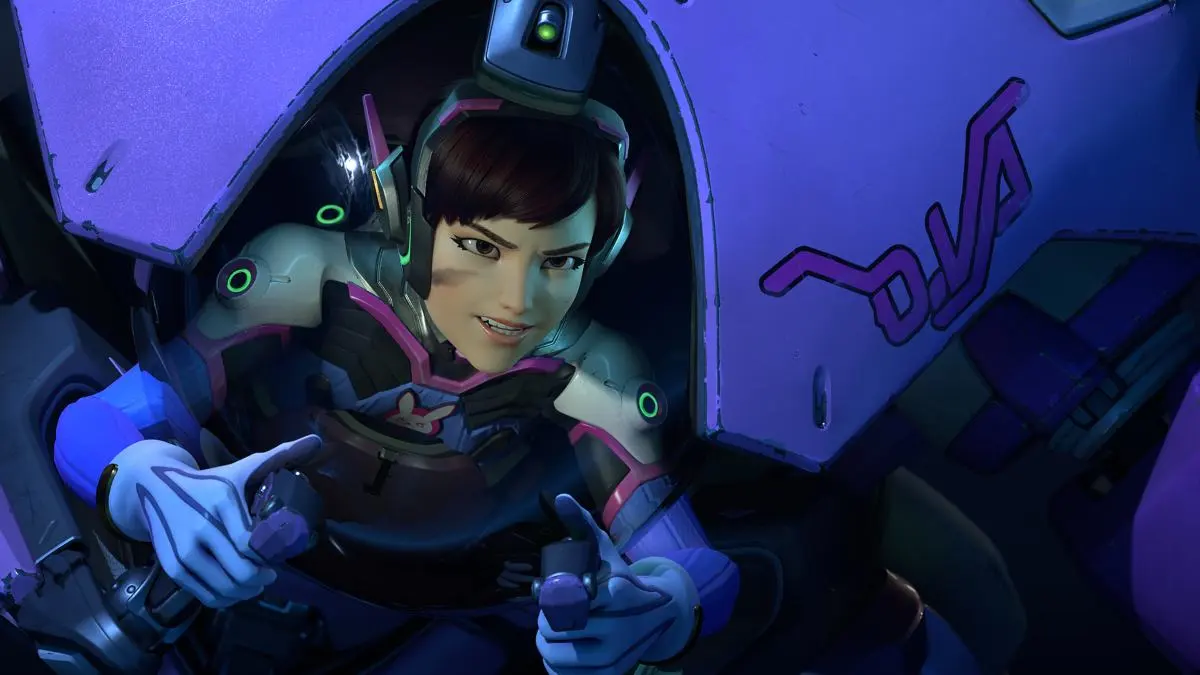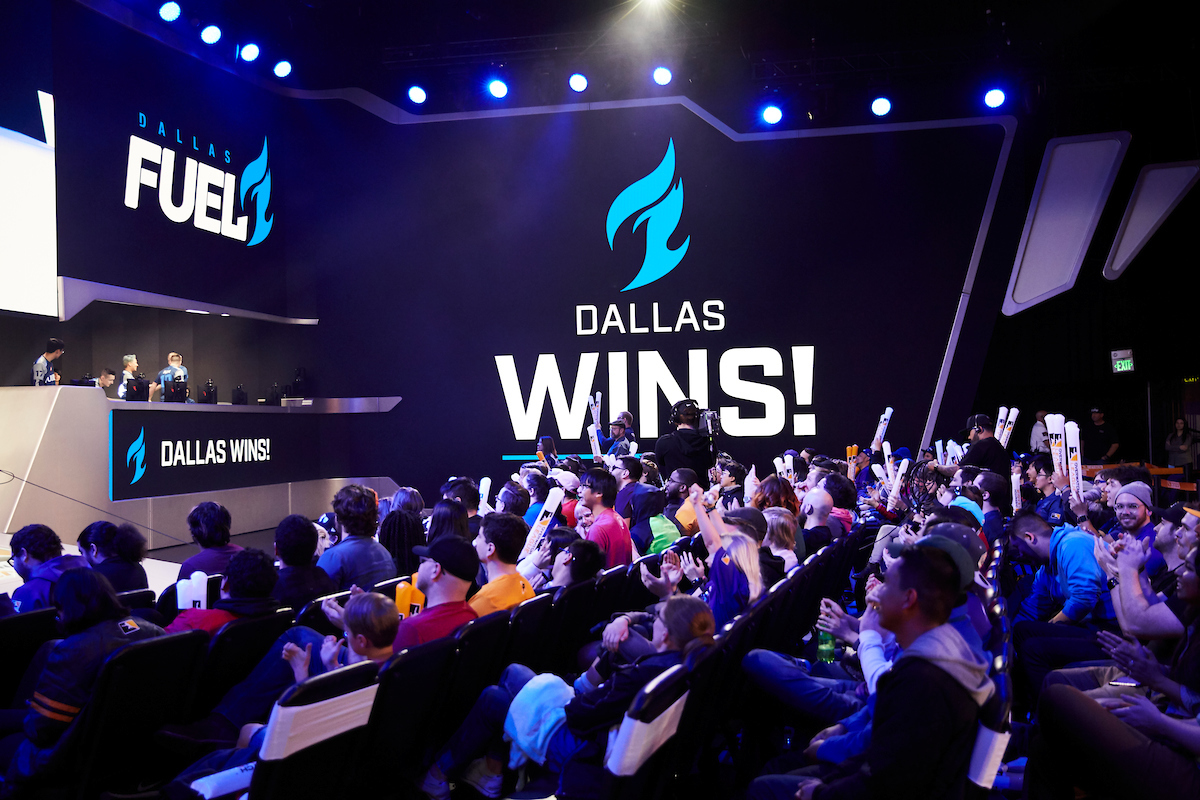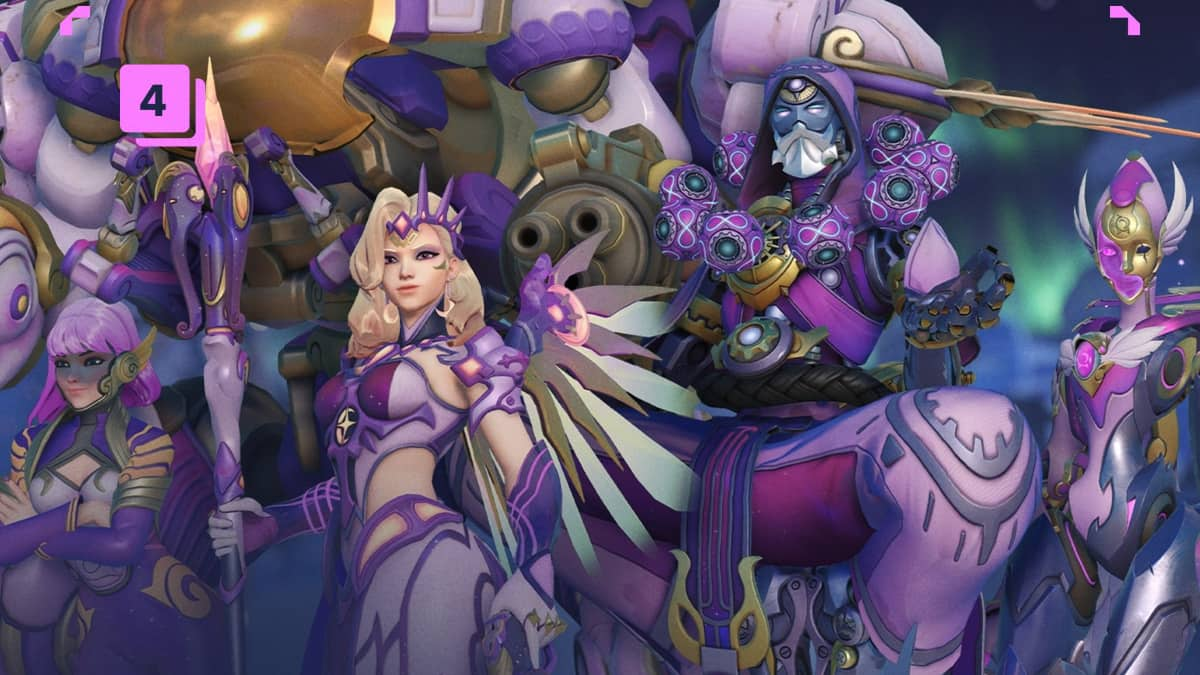This article is brought to you by StatBanana, the best Overwatch strategy tool.
An Overwatch Contenders player announced to a North American team has resigned after being harassed over her legitimacy.
Second Wind, a minor league Overwatch team ranked highly in Contenders, added a new player, called “Ellie,” to the roster in late December. A newcomer to the competitive scene, Ellie was met with conspiracy theories regarding her authenticity immediately following the announcement—that she was a male pro player posing as someone else. Before Ellie could play a single game in Overwatch Contenders, Second Wind announced Ellie’s departure in a tweet yesterday.
Doubters pointed to Ellie’s account age—relatively low-experience for having a high rank—as grounds for suspicion. Others figured she was using a smurf account for privacy; her name was never listed on the Overwatch Contenders website for what’s assumed is a similar reason. On the more extreme end of reactions, a highly-ranked and banned player called “Haunt” suggested doxxing Ellie to prove her identity, his intention shared in screenshots posted to Twitter by Ellie.
Overwatch League player Daniel “Dafran” Francesca of Atlanta Reign also publicly doubted Ellie’s authenticity during a Twitch stream. “What I think is happening right now is someone is playing on this account and Ellie is talking right beside him,” Dafran said after meeting Ellie on Overwatch’s ranked ladder. Australian Overwatch Contenders player Thy “Mini” Le said that these instances have been common in Ellie’s ranked Overwatch games. She wrote on Twitter on Jan. 2 that every game she plays with Ellie has players that “hard flame and leave the game or shit talk non stop.”
Second Wind credited the community reaction for Ellie’s departure from the Overwatch Contenders team. “Unfortunately, due to some unforeseen reactions, Ellie has opted to step down from the team,” a Second Wind representative wrote on Twitter. “We hope you continue to support her in her ventures in Overwatch as we will.” Shortly before the announcement was posted on the Second Wind account, Ellie tweeted a simple “sorry.”
Justin Hughes, Second Wind’s owner, further explained the “unforeseen reactions” in a Twitter thread.
“When we brought her onto the team, people acted like we had brought on a symbol of empowerment,” Hughes wrote. “I get that people meant well, but on one side, we had people questioning her legitimacy, issuing threats, etc. while on the other hand, we had people acting like they had found their Messiah.”
Hughes told Dot Esports that the organization is “withholding from making further public comments” out of respect to the “wishes of those involved.” Ellie has not responded to Dot Esports’ request for comment before publication time.
Hughes added that it seems like “the Overwatch community isn’t ready to view a player as just a player.” It’s a similar attitude that many took when the Overwatch League’s first (and only) female player, Kim “Geguri” Se-yeon, joined the Shanghai Dragons last year. Geguri herself was hesitant to accept the title; she’s a fierce competitor who just wants to play her game. But because esports—and Overwatch, despite being heralded as beacon of diversity—is so male-dominated, a female player is automatically othered specifically for that reason. The community’s reaction to Ellie’s entrance into semi-pro Overwatch says a lot about gender inclusion in the industry; despite all the backlash, there’s an intense community of women desperate to see themselves in the competitive Overwatch scene.
The community often asks, where are the women in esports? On paper, Overwatch esports should be a meritocracy. But it’s not—and Ellie’s situation is a stark reminder of that. Women in esports typically face similar harassment for skill or perceived lack-thereof. It happens at all ranks, on the ladder and in elite-level play. Just last week, Los Angeles Gladiators social media director Analynn Dang, a grandmaster-ranked Overwatch player, tweeted about her own experience on the game’s ranked ladder. “I literally talk on voice chat at the start of the game and someone starts screaming that we lost because there’s a girl on the team,” she wrote. “Then they proceed to AFK and throw the entire game.”
Houston Outlaws general manager Matt Rodriguez echoed this sentiment, noting that a woman started talking in a recent ranked game of his and other players immediately started throwing. “I’m realizing the female player base might have significantly higher SR if they didn’t have to deal with morons throwing their games for existing,” Rodriguez wrote.
(Some harassing Ellie considered the lack of voice communication in Overwatch matches as a reason for skepticism, despite this being a common occurrence for women playing games—and a major reason why many women don’t use a mic.)
“We’ve seen this in games for years,” Washington Justice general manager Kate Mitchell told Dot Esports. “A generation of girls are growing up playing and making games and seeing that succeeding makes you a lightning rod for the worst the internet has to offer. It takes tremendous bravery to put yourself out there.”
Mitchell said it’s on players and team staff to act as “moral leaders.” Fan conduct can’t be directly controlled, they said—but support from management and other players can help mitigate the damage. “Players and staffers should be more vocal speaking up against harassment and sending a message that it’s not acceptable in our community,” Mitchell said. “It’s something we can all do better.”
Teams must begin pushing back on community harassment and finding tools to protect its players—not just women, they said.
“Teams should plan to involve talent of all genders at every level of their organization and be prepared to support and defend their marginalized personnel when these kinds of mobs arise,” they said. “Non-profit groups have helped provide resources to employers, like Crash Override’s guide to what to do if your employee is being targeted by online abuse.”
Overwatch Contenders representatives have not responded to Dot Esports’ request for comment.
Update, Dec. 1 at 4:11pm CT: Cloud9 streamer Becca “Aspen” Rukavina alleged on stream that Ellie is a fake identity created by an Overwatch ladder player called “Punisher.” She claimed Punisher intended to use the Ellie identity as a “social experiment.” Rukavina has not responded to Dot Esports’ request for comment.
Esports figure Rod “Slasher” Breslau also wrote on Twitter that Ellie told former Second Wind teammates that she’s “real,” but “not good” at Overwatch. Breslau alleged that Second Wind players and management were unaware of the fake identity. Second Wind player Corey “Frill” Scoda tweeted, too, that the team had been duped.
Breslau also said Blizzard is investigating the situation.
This is a developing story.






Published: Jan 3, 2019 08:55 pm